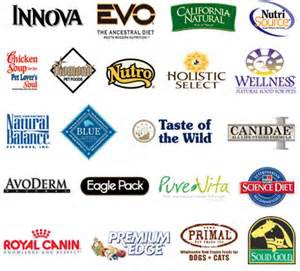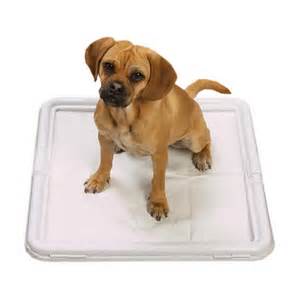What To Do When Bringing New Puppy Home

I can just imagine how excited you are in bringing home your new puppy. Now what should you do? This is a good question. Remember, the puppy is trying to get used to you as you are of him. There are some preliminary steps you will need to take when caring for new puppies and dogs. This is especially true when bringing home your pet for the first time.
In this article will cover the following topics:
- The place where your pet will stay
- Nutrition and feeding
- Vaccination schedule
- Puppy health
- House breaking
The Place Where Your Pet Will Stay
 Depending upon the age of your puppy or dog, ensure that the temperature of your house is between 70 to 75 degrees. The puppies body temperature will vary as they get older from 97 degrees in a newborn to 100.5 to 102.5 degrees when about 4 weeks old. You can ask the owner of the pet store or vet how cool or warm your house should be when bringing home your pet.
Depending upon the age of your puppy or dog, ensure that the temperature of your house is between 70 to 75 degrees. The puppies body temperature will vary as they get older from 97 degrees in a newborn to 100.5 to 102.5 degrees when about 4 weeks old. You can ask the owner of the pet store or vet how cool or warm your house should be when bringing home your pet.
Where your pet will stay is also important. Be sure to find a quiet place that is out of the way of heavy traffic areas. This will help your puppy or dog to get acclimated into their new surroundings.
This area or space will also be the place where they will sleep. You want your pet to acclimate himself to the surroundings of where he will eat and sleep. A place where he can feel safe and out of the way and can call home. Puppies will sleep about 22 hours as a newborn puppy. As they mature out of newborn status, about three months, they will need between 15 to 20 hours of sleep a day. So, having a place for him to sleep is very important to you and your puppy or dog.
Back To Top
Nutrition and Feeding Your Pet

As your puppy ages, it will have different diet needs as it goes through its different life cycle stages. This is also true for their nutrition. All dogs need the proper proportions in the following groups: water, protein, fat, fiber, vitamins and minerals. When you purchase food for your dog you will need to consider these different groups so that your pet gets and eats a balanced diet every day.
You will also need to understand the pet food label to ensure the most healthful ingredients are being used to manufacture the food. This is important for your pets overall health. As a pet parent, it’s up to you to ensure that your puppy or dog eats healthful food and treats.
Puppies go through infancy, childhood, and adolescence in about one year. As they go through these cycle phases, they will have different dietary needs and it’s up to you to provide it for them. These needs may change every few months especially during the first year. Your dogs breed may also play a role during this phase of their growth.
Protein
Puppies require up to 27% protein to help their growth during its first year. This is vital for a healthy tissue growth in the puppy. When the dog reaches adulthood, the protein needs can be reduced to 21%. You will need to scan the dog food labels to ensure it will provide sufficient protein for your dog.
Fat
Fat is a concentrated form of energy and contains twice as much energy per unit of weight as protein or carbohydrate. This group should be closely monitored. Fats are important for promoting healthy skin and coat for the dog. Any fat not burned off will get stored as body fat and will tend to make the pet obese. This is not good for the health of your pet. It will become difficult for a pet to lose this added weight as it gets older. You may have to consider more exercise for your pet to prevent obesity. You may have to consider feeding him less. Use your observation and review your pet’s weight. If you notice some weight gain, you can take corrective action.
Fiber
Fiber is important nutrient to help the puppies or dogs digestion. The roughage helps keep the gastrointestinal tract working properly for healthy bowel movements.
Minerals
Puppies require larger doses of some minerals than adult dogs. These nutrients are: calcium and phosphorus. These minerals are essential for the development of strong bones and teeth. So, it’s important that the food the puppy eats contains these and other minerals.
Vitamins
Vitamins are important in metabolic regulation and the development of a dog’s body. As the puppy is growing they will need food with vitamins balanced according to their life stage. Some vitamins your puppy needs to help him grow are: A, E and B vitamins. Vitamin A helps the dog’s vision, healthy immune system, and skin and coat. Vitamin D helps regulate the absorption of calcium and phosphorus and proper bone development. Vitamin E helps support a healthy immune system.
Water
Just like humans, dogs need lots of water. Water helps regulate the body’s temperature, cushion joints and internal organs, digest food, lubricate tissue and eliminate waste. Fresh drinking water is a must and should be available to dogs at all times. Be sure to have plenty of water for your dog in a clean bowl. It’s important to clean the bowl periodically. In the summer, the water should be cool, and in the winter, the water should be at room temperature. If your puppy or dog should lose more than 15% of its body liquid, it could mean possible health problems and even death. All dogs require at least one ounce of water for every pound of body weight every day.
Another important factor to consider is to know which ingredients to avoid in pet food. If you want a healthy and long living puppy growing into an adult dog, read the article on which foods to avoid.
If your puppy or dog is not getting enough of vitamins or minerals in their daily food diet, you will have to supplement them with vitamin and mineral supplements. You can find these at your local pet store.
Vaccination Schedule
Generally, in the first three months of a puppy’s life, your veterinarian will need to see the puppy every two or three weeks for vaccinations. This will continue until your puppy reaches about 14 weeks of age. Visits to the vet will taper off after six months and will depend upon your dog. Booster shots will be given at regular intervals and some may be annually.
Be sure to keep the vaccination record stored in a safe place and easy to access in case of an emergency.
Back To Top
Puppy Health

Look for signs that your puppy may not be healthy. When they go out to do their business, look for signs of blood in the urine and stools and if it’s foul smelling. Report these to your veterinarian if you should see or observe them.
Here are some other signs to look for:
- Be sure to check that his eyes are bright, clear and shinny, without any discharge or discoloration. His nose should be cool and moist. The ears should be clean. Report any changes to your vet.
- Check his gums for swelling and bleeding, his teeth for any tartar build-up. Check that his tongue is clean and his breath does not have a bad odor. You can perform regular dental prevention with your pet.
- If he should experience any excessive vomiting over several days, report this to your veterinarian.
- Be sure to trim his nails periodically.
One final note, be sure your pet has a healthy appetite. Do not worry if he should go off his diet for a day or two, but a loss of a healthy appetite is a cause for concern.
Some other signs to look for:
- He wants to hide in dark places
- He displays a lack of interest in what is happening around him.
Consult your veterinarian when you observe these signs. Whenever you have concerns for your puppy, don’t accept advice from friends but always consult your veterinarian. If you are unsure about anything, consult your vet. It’s better to be safe than sorry later.
Back To Top
House Breaking
Check out the video below on housebreaking your new puppy.
When you bring your puppy home, you will need to train him to learn his name and other things such as doing his business outside and not in the house. The training should consist of short sessions twice a day. Use dog treats for enforcing proper behavior. Reward your pet only when they show the proper behavior to your command.
This is where time and patience comes in. As with anything, good results will take practice and your time. Remember this as you begin your pets training sessions. Do not train your pet when you are upset or angry. Your pet will sense this. Never ever hit your pet physically. Your pet will begin to fear you and you will be sending the wrong signals and will have difficulty in training him.
Back To Top
Conclusion
The information just shared should be of great value to you when you purchase your pet and bring him home. By following these easy steps in the caring for new puppies and dogs, you will find that being a pet owner can be very rewarding.
As an Amazon associate, I earn from qualified purchases.
Go back to Dog.Dog Luxury Beds home page.
